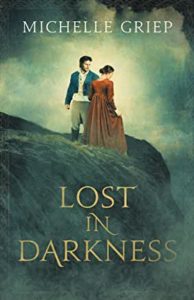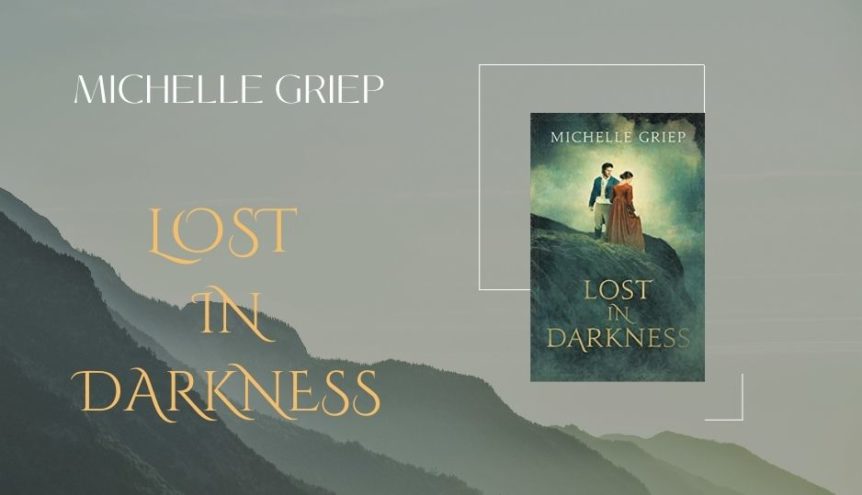 The first sentence of Lost in Darkness was nothing profound: There was something glorious about the first day of June. I’ve read many times how important it is for an author to create a provocative first sentence, otherwise the reader may not be drawn into the book. I’m here to tell you not to base this historical fiction on its rather unimpressive first sentence or even its first paragraph. It is definitely not an indicator of the quality of the writing in this beautifully crafted story.
The first sentence of Lost in Darkness was nothing profound: There was something glorious about the first day of June. I’ve read many times how important it is for an author to create a provocative first sentence, otherwise the reader may not be drawn into the book. I’m here to tell you not to base this historical fiction on its rather unimpressive first sentence or even its first paragraph. It is definitely not an indicator of the quality of the writing in this beautifully crafted story.
There is a reason we have so many genres to choose from. Everyone has a favorite. Although, my adorable daughter recently told me that she’s learned genre doesn’t matter—she enjoys anything that is well-written. Since her go-to genre has always been sci-fi and fantasy, it’s a thrill that she’s my biggest fan. I’m handing off this book for her to now read, as I’m absolutely sure she’ll love it as much as I did.
What is truly uncommon about Michelle Griep’s Lost in Darkness is that its historical fiction dances around with the beginnings of one of the most popular sci-fi stories of all time—Frankenstein; or, the Modern Prometheus. Until reading the novel, I hadn’t even heard of this original title. I always thought it was just plain, old Frankenstein. It’s always a treat when I learn something new.
Admittedly, I am not a fan of sci-fi, and I shudder at even the thought of Frankenstein. I’m sure I’m in the minority, given the vast number of works that have been off-shoots of this original story written by a very disturbed Mary Wollstonecraft Godwin Shelley. Until reading Ms. Griep’s book, I’d never given the Frankenstein author a thought. But the way Shelly’s personal life, even in the slightest, is woven into Lost in Darkness had me searching out more. Such a sad and desolate existence the young author must have lived. But this post isn’t about her, so if you’re at all intrigued, be sure to do a little research on your own. Ms. Griep does include a brief biography in her acknowledgements.
If you’re looking for a fast-paced, quick read, this book isn’t it. You would want to shelve it until you can take the time to savor the beauty of the words, the uniqueness of the characters, and the Christian themes that are woven throughout. It’s an experience you don’t want to miss.
I love words. I’m utterly impressed when an author can paint a scene or a character with perfectly chosen words that also capture the time and place. This one is London, 1815. As a travel writer, Amelia Balfour is rare to this time period. And, as this has romance as well, we need to have a hero we can swoon over. That would be former military doctor Graham Lambert. We also need an evil element to put it altogether, and Ms. Griep offers up “Uriah Peckwood, a prominent and—as some claimed—rather provocative surgeon.”
There are so many spiritual lessons that are naturally played out. First and foremost is Colin Balfour, Amelia’s brother. He has a strong faith in the Lord, a tender heart for his sister (and others), and is grotesque in his appearance. He terrifies everyone he comes in contact with by his deformities. What I took from this is our tendency, as fallen individuals, to judge people by what we can see rather than by what we can’t—their hearts. It brings to mind 1 Samuel 16: 7: But the LORD said to Samuel, “Do not consider his appearance or his height, for I have rejected him. The LORD does not look at the things man looks at. Man looks at the outward appearance, but the LORD looks at the heart.” Such a great reminder for me. However, Colin is the vehicle with which Ms. Griep uses to make sense of Mary Shelly’s appearance in the book.
Since I’ve been reviewing books, I’ve given only a few five-star ratings. It may seem harsh, but if I don’t absolutely fall in love with the writing, the story, the experience of reading it, I can’t in good conscience give it a perfect rating. This is definitely a five-star book. I rarely reread books, but as a writer, I can learn so much from studying Michelle Griep’s well-crafted work and, hopefully, apply it to my own.







Comments 2
I have also read Lost in Darkness. While I enjoyed most of the novel for some of the same reasons you have mentioned, I was disappointed at what happened to Colin Balfour. I wanted a better conclusion for him.
Author
I agree. In a perfect world he would have been healed. But when I think of the redemption story, of how much he loved the Lord, and where he was going to spend eternity, I was cheering for him. No more pain. No more hurtful reactions. He was in paradise. What better conclusions is there, really?